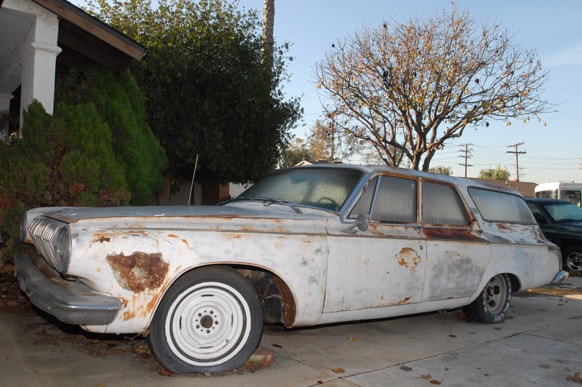Last year, the US automotive industry was struggling to get its bearings back, after a series of spectacular bankruptcies sent the sales numbers spiraling out of control. Aside for the billions pumped by the US government directly into carmakers like GM and Chrysler, a new program, which would become known as Cash for Clunkers, was set in motion.
Aiming to boost new car sales, get the nation rid of old, polluting vehicles and indirectly save the troubled carmakers, the program worked like a charm. According to the report submitted by the Department of Transportation, 680,000 older vehicles were replaced by new, more fuel-efficient ones in a period of just a few months.
According to the report, the program saw, as a twist, the foreign carmakers benefiting the most from the program. In the top five best selling carmakers under the program, only two are American, the rest being Japanese. Toyota was the undisputed leader, with 19.4 percent of the buyers going for the Japanese maker, followed by GM and Ford (17.6 and 14.4, respectively). Honda and Nissan came in fourth and fifth, with 13 and 8.7 percent, respectively.
Of course, there are some claiming the program, looked from new angles, was a bust. Mostly because of the declining sales result for the seven months that followed the conclusion of the program and the fact that the program failed to bring new customers into the market. In the view of economists from the University of Chicago the University of California, the program only delayed the recession in the industry.
"You could argue that if you're in the depths of a really bad recession, maybe shifting purchases of automobiles by even a couple months, maybe that's a useful thing to do," Amir Sufi from the University of Chicago told npr.org.
"But I think it's incredibly important for policymakers to understand that whenever you induce the purchase of any good - whether it be homes, whether it be a washing machine — you are in some sense stealing those purchases from the very near future."
Aiming to boost new car sales, get the nation rid of old, polluting vehicles and indirectly save the troubled carmakers, the program worked like a charm. According to the report submitted by the Department of Transportation, 680,000 older vehicles were replaced by new, more fuel-efficient ones in a period of just a few months.
According to the report, the program saw, as a twist, the foreign carmakers benefiting the most from the program. In the top five best selling carmakers under the program, only two are American, the rest being Japanese. Toyota was the undisputed leader, with 19.4 percent of the buyers going for the Japanese maker, followed by GM and Ford (17.6 and 14.4, respectively). Honda and Nissan came in fourth and fifth, with 13 and 8.7 percent, respectively.
Of course, there are some claiming the program, looked from new angles, was a bust. Mostly because of the declining sales result for the seven months that followed the conclusion of the program and the fact that the program failed to bring new customers into the market. In the view of economists from the University of Chicago the University of California, the program only delayed the recession in the industry.
"You could argue that if you're in the depths of a really bad recession, maybe shifting purchases of automobiles by even a couple months, maybe that's a useful thing to do," Amir Sufi from the University of Chicago told npr.org.
"But I think it's incredibly important for policymakers to understand that whenever you induce the purchase of any good - whether it be homes, whether it be a washing machine — you are in some sense stealing those purchases from the very near future."

